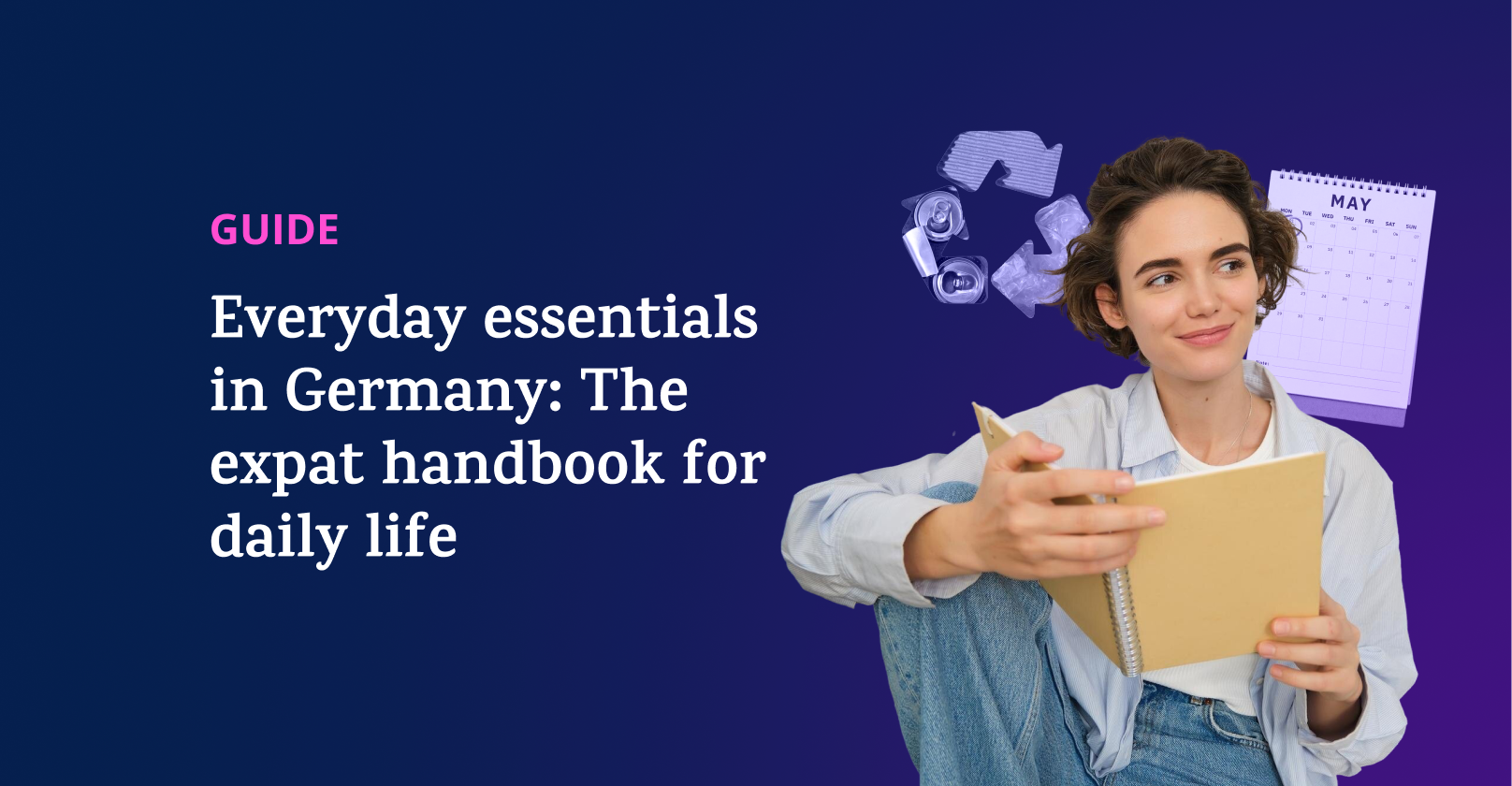German indefinite articles explained: ‘Ein,’ ‘eine’ and beyond

If you've ever hesitated before choosing to say ein or eine in German, you're not alone. Indefinite articles in German are small, but they come with baggage in the form of gender and case.
German grammar is famously exact, and the form an indefinite article takes is tightly connected to the structure of the sentence that surrounds it. Depending on the noun's gender and its role in the sentence, you could have up to twelve different forms, all translating to the simple English “a” or “an.”
In this guide, we’ll explain the difference between ein and eine, walk through their declensions, and show you how to use them naturally in conversation. Once you’ve got them down, your German will begin to sound impressively precise.
- Understanding ein and eine
- Declension of indefinite articles
- Integrating indefinite articles into everyday German
- Why there is no plural indefinite article in German
- FAQs
Understanding ‘ein’ and ‘eine’
German indefinite articles change based on the gender of the noun and the grammatical case being used.
- Masculine: ein Mann (a man)
- Feminine: eine Frau (a woman)
- Neuter: ein Kind (a child)
Ein is used for both masculine and neuter nouns, while eine is used for feminine nouns. But there’s more — German has four cases, and the article changes depending on the noun’s role in the sentence.
- Here’s what that looks like for the masculine indefinite article for the noun Mann:Nominative: Ein Mann liest. (A man is reading.)
- Accusative: Ich sehe einen Mann. (I see a man.)
- Dative: Ich gebe einem Mann ein Buch. (I give a man a book.)
- Genitive: Das ist das Auto eines Mannes. (That’s a man’s car.)
Yes, it’s a lot to remember, but at least it follows consistent patterns.

Indefinite articles vs. definite and possessive articles
To fully grasp how German indefinite articles work, it helps to compare them with definite articles (der, die, das) and possessive determiners (mein, dein, etc.).
- Indefinite articles (ein, eine) mean “a” or “an.”
Ich habe ein Buch. (I have a book.) - Definite articles (der, die, das) mean “the.”
Ich lese das Buch. (I’m reading the book.) - Possessive determiners (mein, dein, sein, etc.) show ownership.
Das ist mein Buch. (That is my book.)
Quick reference table (nominative case)
| Masculine | Feminine | Neuter | |
| Indefinite | ein Mann | eine Frau | ein Kind |
| Definite | der Mann | die Frau | das Kind |
| Possessive | mein Mann | meine Frau | mein Kind |
Declension of indefinite articles
| Masculine | Feminine | Neuter | |
| Nominative | ein Mann | eine Frau | ein Kind |
| Accusative | einen Mann | eine Frau | ein Kind |
| Dative | einem Mann | einer Frau | einem Kind |
| Genitive | eines Mannes | einer Frau | eines Kindes |
Integrating indefinite articles into everyday German
Indefinite articles show up constantly in daily conversation. They're essential building blocks in both spoken and written German.
- Ich habe eine Idee. (I have an idea.)
- Wir suchen ein Hotel für das Wochenende. (We’re looking for a hotel for the weekend.)
- Hast du einen Stift? (Do you have a pen?)
These aren’t lines from a textbook; they’re real, everyday German. Whether ordering food, asking for help or introducing yourself in German to a neighbor, you’ll use indefinite articles a lot.
A: Ich habe heute einen neuen Kollegen kennengelernt. (I met a new colleague today.)
B: Oh, ist er nett? (Oh, is he nice?)
A: Ja, ein sehr freundlicher Typ. (Yes, a very friendly guy.)
Unlike English, German doesn’t allow the speaker to skip articles. Even in casual speech, using the correct articles in German is important (and can help you avoid sounding too robotic).
Why there is no plural indefinite article in German
In German, there is no plural form of the indefinite article. Instead, when making a general plural statement, you simply omit the article:
- Ich habe Bücher. (I have (some) books.)
If you want to negate a plural noun, though, you must use keine.
- Ich habe keine Bücher. (I have no books.)
- Wir haben keine Haustiere. (We have no pets.)
Is there an indefinite article for plural nouns in German?
No. Just leave the article out, or use keine for negatives.
Are there any exceptions to the rules for indefinite articles in German?
There are a few exceptions, most of which are tied to word order or emphasis. But the core patterns are consistent.
Why understanding German indefinite articles is key to fluency
Indefinite articles may be small, but they play a huge role in how natural your German sounds. Knowing how to use them correctly is essential for building clear, fluent sentences. These articles are everywhere.
The good news? You don’t have to figure it all out alone. With Lingoda, you’ll learn German from native-level teachers who can help you speak with confidence from Day One. Whether you're asking for ein Kaffee or describing eine neue Idee, mastering indefinite articles brings you one big step closer to sounding like a true German speaker.

















